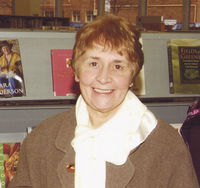 Crisis is often the catalyst for restoring right order and relationship and for the development of new initiatives. Almost half a century ago, the Second Vatican Council reminded us that the church is first and foremost the People of God and the Body of Christ, and not primarily a hierarchical institution. While there is little doubt that this is the time of the laity in the church, it has taken a drastic reduction in the numbers of clergy and religious for lay Catholic women and men to recognise that they are called, by virtue of their baptism, to much more prominent roles in the life and mission of the church. The crisis of numbers is also leading many priests and religious to rediscover the heart of their call to spiritual leadership. Before Vatican II, theological education was largely the preserve of the clergy. That has changed and will need to change even more dramatically if lay women and men are to be properly resourced to take their rightful place in the church. Instead of bemoaning the crisis and looking for interim measures to ‘fill the gaps’, we might look for signs of the Spirit at work in leading us into new ways of being church.
Crisis is often the catalyst for restoring right order and relationship and for the development of new initiatives. Almost half a century ago, the Second Vatican Council reminded us that the church is first and foremost the People of God and the Body of Christ, and not primarily a hierarchical institution. While there is little doubt that this is the time of the laity in the church, it has taken a drastic reduction in the numbers of clergy and religious for lay Catholic women and men to recognise that they are called, by virtue of their baptism, to much more prominent roles in the life and mission of the church. The crisis of numbers is also leading many priests and religious to rediscover the heart of their call to spiritual leadership. Before Vatican II, theological education was largely the preserve of the clergy. That has changed and will need to change even more dramatically if lay women and men are to be properly resourced to take their rightful place in the church. Instead of bemoaning the crisis and looking for interim measures to ‘fill the gaps’, we might look for signs of the Spirit at work in leading us into new ways of being church.
In today’s gospel, we hear that Jesus chooses ‘70 others’ and sends them out in pairs. Thirty-five couples or ‘pairs’ constitute a formidable resource for the mission. They are authorised to be bringers of peace and healing, proclaimers of God’s reign. They are to travel light and accept whatever hospitality is offered them.
Given the presence of women in the inner circle of Jesus’ followers (Luke 8:1-3), it is likely that at least some of these pairs were married couples. Further support for this comes from Luke’s second volume, the Acts of the Apostles, which features a married couple, Priscilla and Aquila, as prominent itinerant missionary associates of Paul. They are Jewish refugees who find a home in Corinth in the aftermath of Claudius’ expulsion of the Jews from Rome. They are well established in Corinth as tent makers and offer hospitality to Paul when he comes to Corinth. When Paul leaves for Syria, they accompany him as far as Ephesus. In Ephesus, Priscilla is presented as a confident woman theologian who takes the initiative in calling aside the eloquent and well-educated Jewish teacher, Apollos of Alexandria, who has an ‘accurate’ but ‘incomplete’ knowledge of Jesus.
In our communities, there are faith-filled, talented, and courageous couples like Priscilla and Aquila, as well as countless single lay women and men, who are willing to commit their talents and personal resources for the sake of the mission. They need the authorisation of the present leadership and the unfailing support of the local communities.